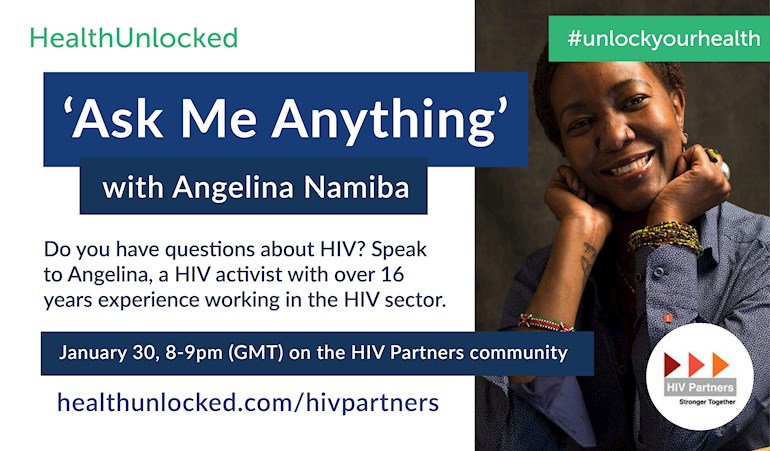Angelina Namiba, an HIV expert with over 16 years experience working in the field, is online answering your questions now!
Scroll down to post your questions as a reply to this post and Angelina will respond as soon as possible. Please refresh the feed intermittently to stay up to date with the latest questions and replies.
